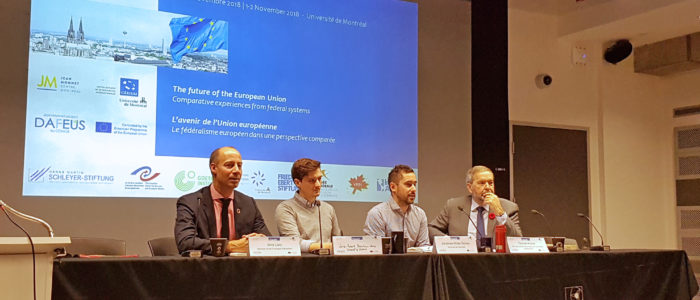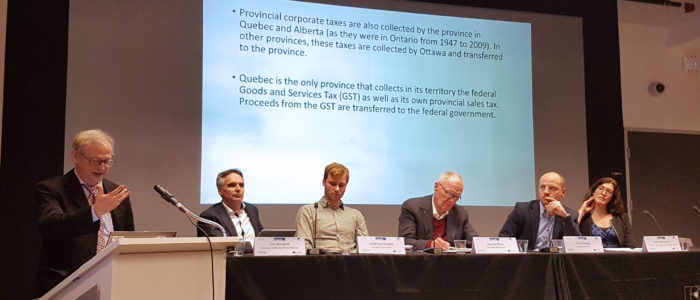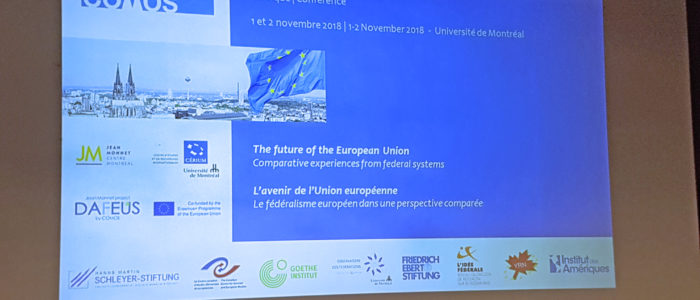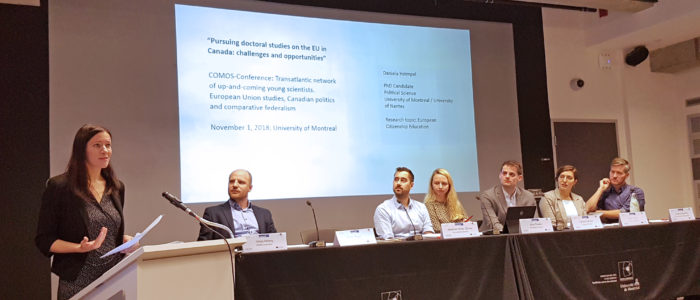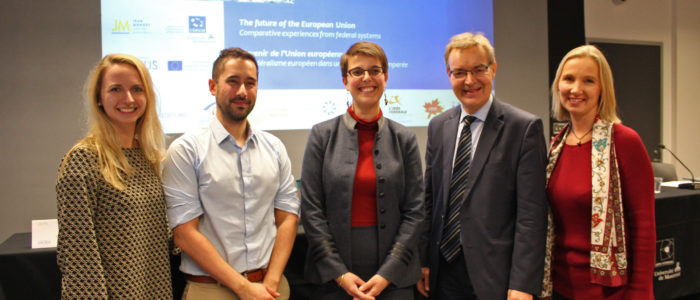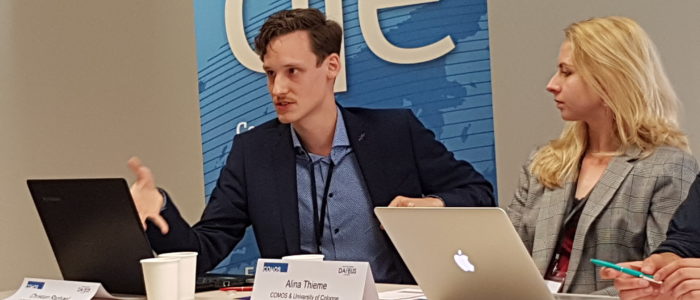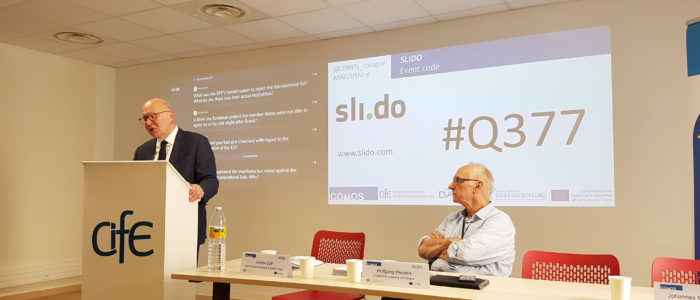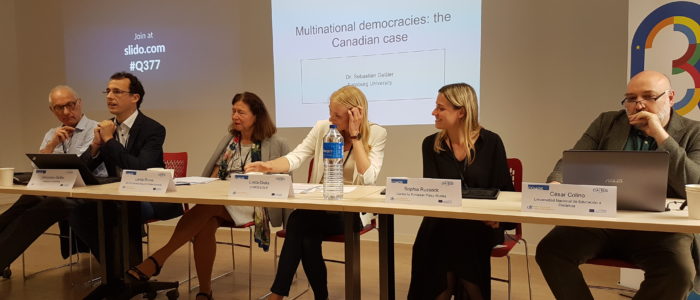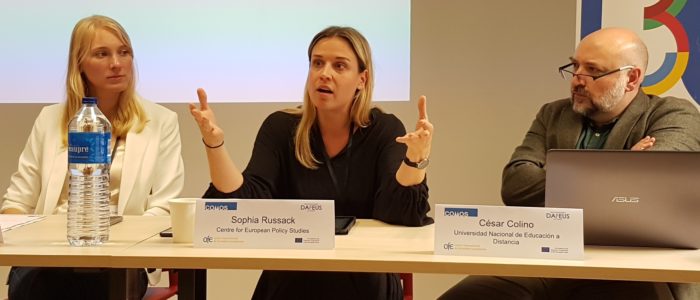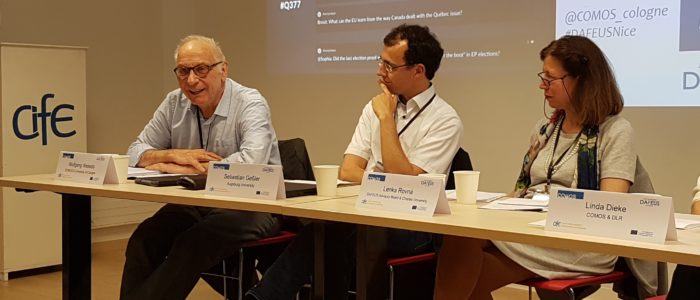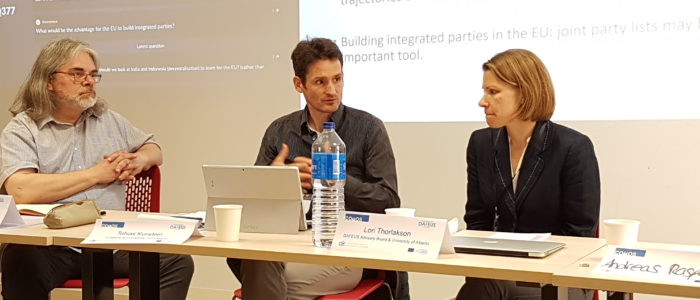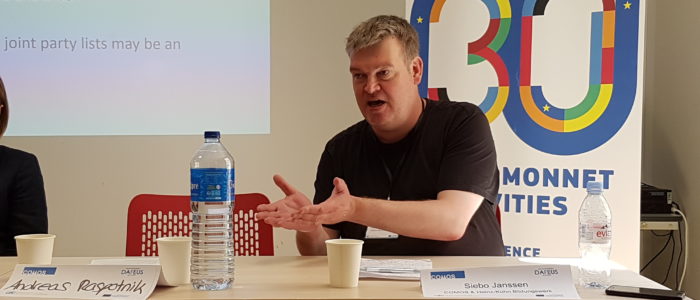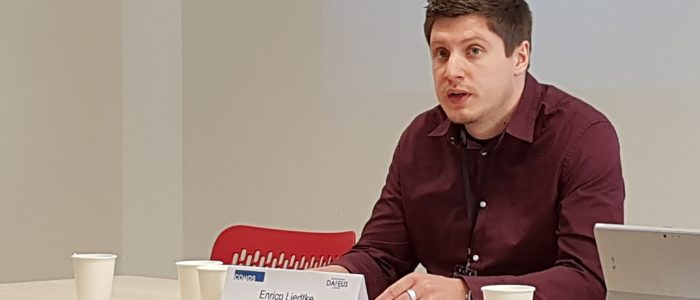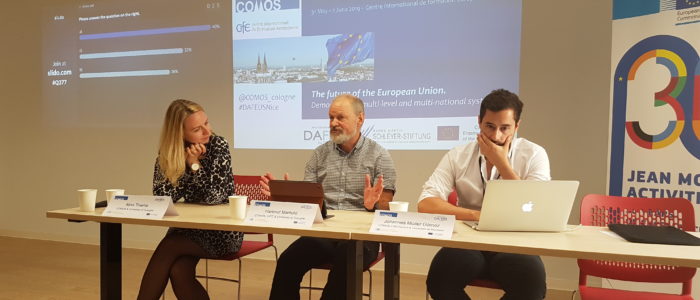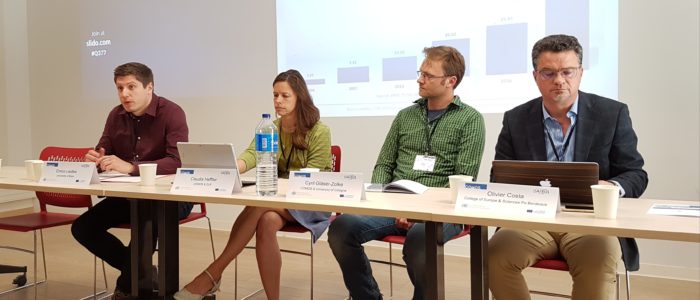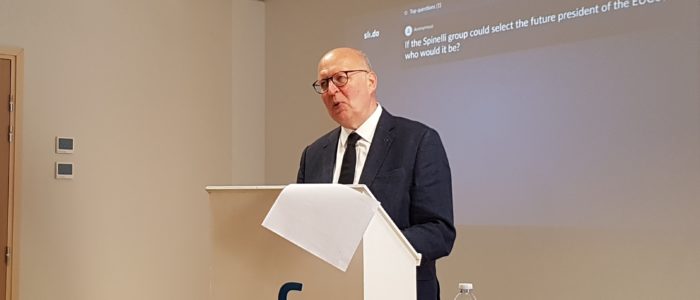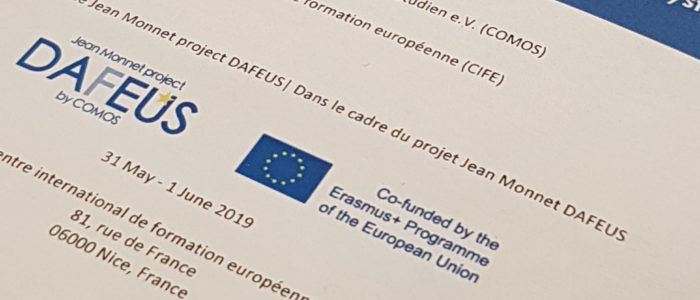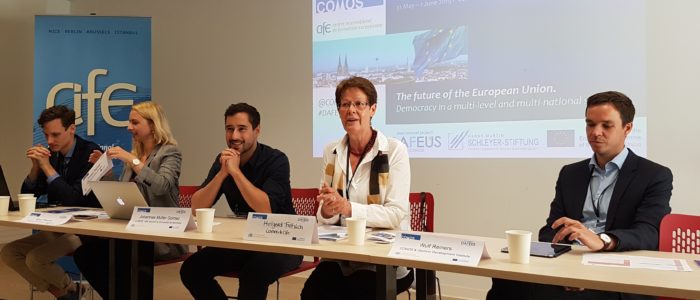DAFEUS organised two “DAFEUS weeks”, which each comprised a
- policy lab on the project’s three key topics which will elaborate concrete policy recommendations, and an
- international conference bringing together practitioners, academics, students, civil society and the general public to discuss the future of the EU.
The DAFEUS weeks aim to:
- serve as forum of exchange to discuss the future of the European Union,
- throw light on the current political developments and academic debates against the backdrop of the current debate on the future of the EU,
- contribute to open research on European integration to expertise from the field of comparative federalism,
- gather both senior scholars and up-and-coming academics from diverse backgrounds, political practitioners and civil society representatives, and
- foster an intergenerational academic network in the areas of EU studies and comparative federalism among scholars based in Europe and in North America.
DAFEUS week 2018 in Montréal
The first DAFEUS week took place from 30 October 2018 to 2 November 2018 at the Université de Montréal. By comparing the EU to Canada, the question of how the EU can be made more democratic, more effective and more efficient was explored. Further information is available here.
DAFEUS week 2019 in Nice
The second DAFEUS week took place in Nice from 29 May to 1 June 2019. The focus was on the debate how democracy can work in a federal or multi-level systems and how the supposed democratic deficit of the EU can be overcome. Further information are available here.
DAFEUS week 2020 in Vienna
The third DAFEUS week on “The future of the European Union: Towards a differentiated Union?” was planned to be organised cooperation with the University of Cologne and the Institute for Advanced Studies (IHS) in Vienna in spring/summer 2020. Due to the COVID-19 pandemic, the event had to be cancelled.
The European Commission support for the production of these publications does not constitute an endorsement of the contents which reflects the views only of the authors, and the Commission cannot be held responsible for any use which may be made of the information contained therein.



